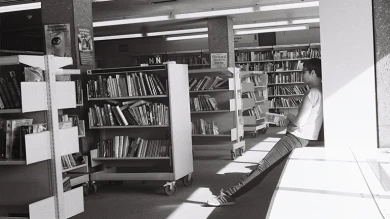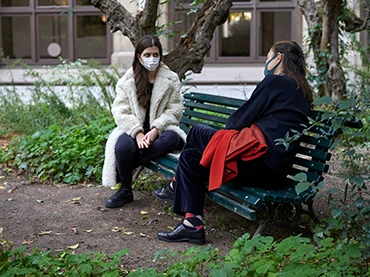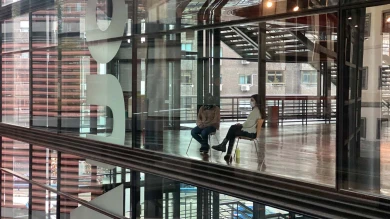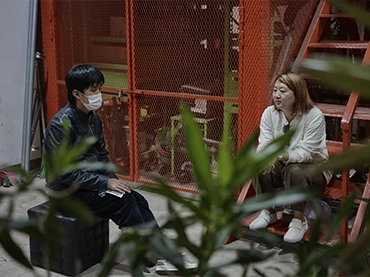
Held on 12 Nov 2020
“Devoting countless hours to learning books by heart seems to contradict every principle governing what we understand by human effort from modernity. Whether it be an artistic or life experience, it seems an obvious and unjustifiable waste of time. It creates nothing new, no new idea that changes or improves the state of things, no new image that helps us to comprehend our problems".
Mette Edvardsen
“Learning by heart is perhaps the best possible reading of a book, by a reader who is moved and captivated, willing to learn the text in such a way that it becomes an integral part of her living organism”.
Victoria Pérez Royo
“Autorías Subterráneas. Texto, cuerpo y vida en Time has fallen asleep in the afternoon sunshine” en Tropelías. Revista de Teoría de la Literatura y Literatura Comparada (2), 2017
The Museo Reina Sofía presents, in a collaboration with the Oslo Biennial (2019–2024), Time has fallen asleep in the afternoon sunshine, by choreographer Mette Edvardsen, a project in which people from different countries learn books of their choice by heart. Together they form a library collection of “living books” which, at stipulated points, are available to the public in the form of individual encounters from which to recite what has been learned to a visitor.
Time has fallen asleep… focuses on the importance of memory and word of mouth, on producing conditions of encounter between people, on proximity, intimacy and care, by dint of a liking for highly divergent books: novels, essays, poetry, prose. The title comes from a phrase that appears in Ray Bradbury’s 1953 novel Fahrenheit 451, which is set in a future society where books are forbidden, causing a community of people to go underground to learn the last existing books with a view to conserving them. Thus, in this activity learning by heart is done as an ongoing practice in time. The project aspires to nothing material �— learning a book by heart means to take on a continuous process of recalling and forgetting.
Between 2020 and 2021, the Museo will welcome, in different formats, public events devoted to searches in this specialised library. On this first occasion, two new living books have been produced in Spanish. People who are interested can request the reading-transmission of these two books in the Museo Reina Sofía Library, or receive any of the five books listed at the top by post. Therefore, a total of seven living books — two in an in-person, oral format and five received by mail — form the catalogue of this first public moment.
Since its inception in 2010, the project has been presented in over fifty book shops and libraries in different cities, with a growing number of living books that make up a library currently holding 88 titles in English, French, Arabic, Dutch, Norwegian, Greek, German, Polish, Estonian, Swedish, Danish and Greenlandic.
Living books available:
In oral format:
- Amuleto (1999), by Roberto Bolaño
- La hora de la estrella (1977), by Clarice Lispector
By mail:
- Bartleby the Scrivener (1853), by Herman Melville
- A Handbook of Disappointed Fate (2018), by Anne Boyer
- Mrs Dalloway (1925), by Virginia Woolf
- Slaughterhouse-Five, or The Children's Crusade: A Duty-Dance with Death (1969), by Kurt Vonnegut
- I Am a Cat (1905), by Soseki Natsume
Sponsorship
Credits:
Concept: Mette Edvardsen
Participants: Mette Edvardsen, Violeta Gil, Andrea Rodrigo, Alexandra Napier, Jon Refsdal Moe, Emmilou Rößling and Kristien Van den Brande
Production: Mette Edvardsen / Athome Manyone
Co-production: Dubbelspel - STUK Kunstencentrum & 30CC (Louvain), Dance Umbrella (London), Kunstenfestivaldesarts (Brussels), NEXT Arts Festival (Valenciennes, Lille, Kortrijk, Villeneuve d'Ascq), Wiener Festwochen (Vienna), osloBIENNALEN First Edition 2019-2024 (Oslo), Museo Nacional Centro de Arte Reina Sofía (Madrid)
Support: Arts Council Norway / Norsk Kulturråd
Participants
Mette Edvardsen lives between Oslo and Brussel and works in the sphere of stage arts and performance, in addition to her explorations in other mediums and formats such as video and the publishing and experimental composition of books. Due to her training as a dancer and participation in choreographic projects and prestigious companies like les ballets C de la B and Mårten Spångberg, her work is often framed inside the field of dance. Perhaps it is the place from which she investigates modes of generating practices and situations, although her work does break out beyond such disciplinary limits, delving into hard-to-classify terrains, with an interest in the relationship between language and action running through the centre of her work. Edvardsen is currently a researcher at the Oslo National Academy of the Arts and an associated artist at the Black Box theatre in the same city. She is also a founder, with Juan Domínguez, Alma Söderberg and Sarah Vanhee, of the collaborative platform Manyone.

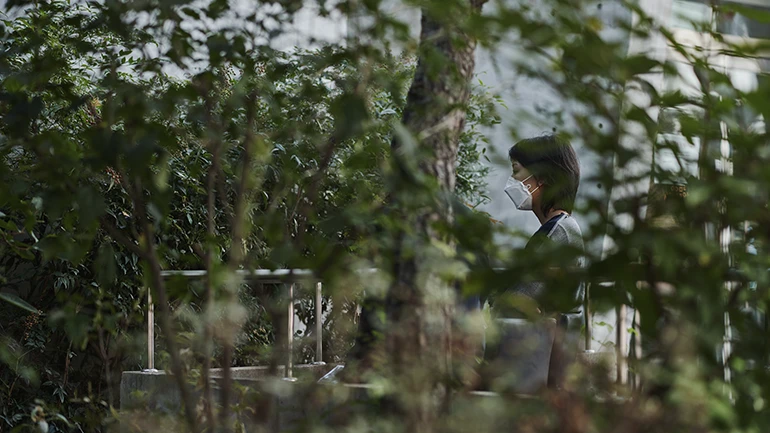
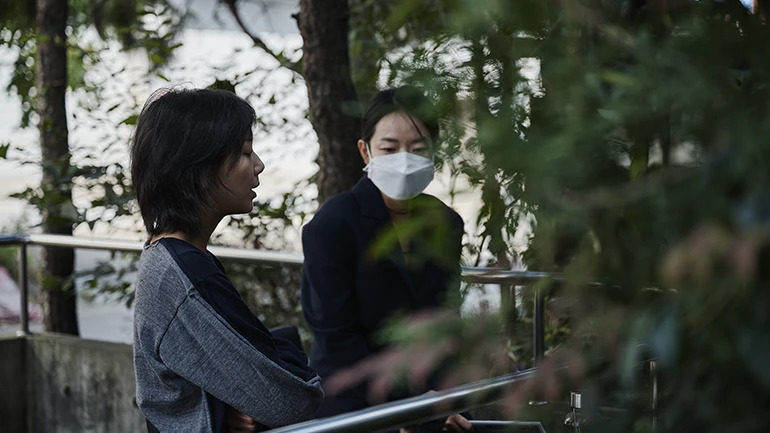
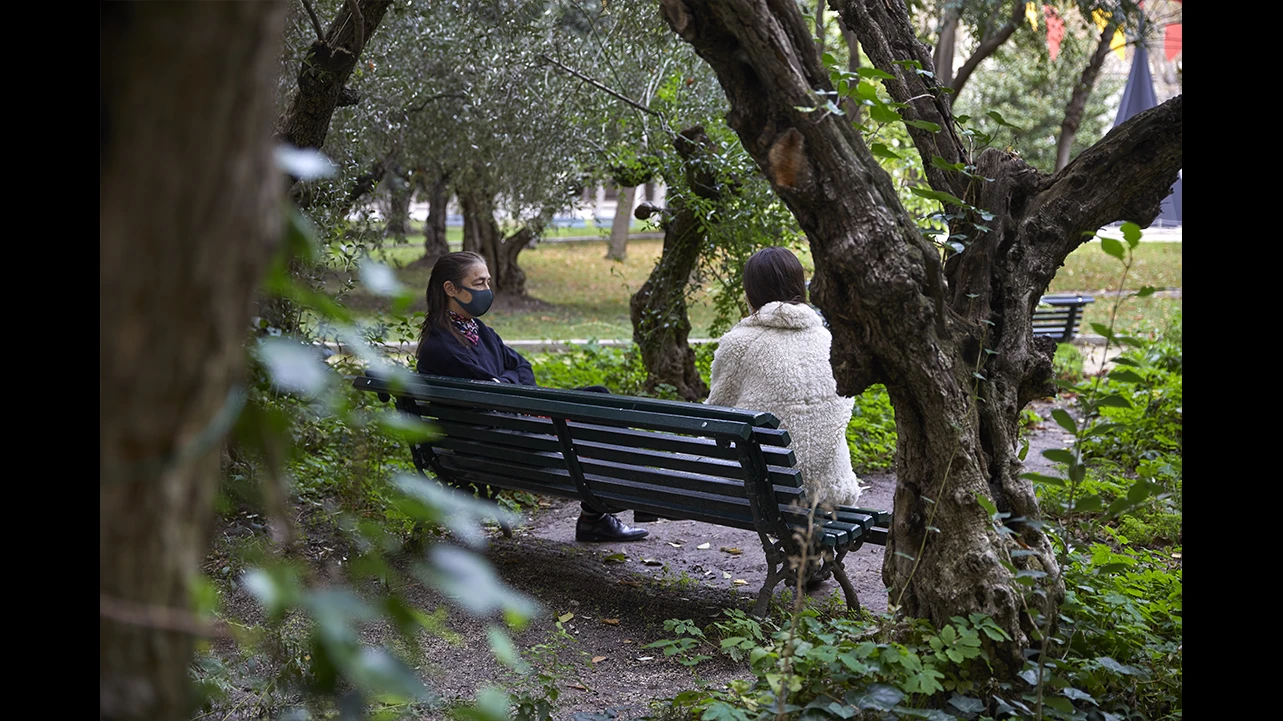
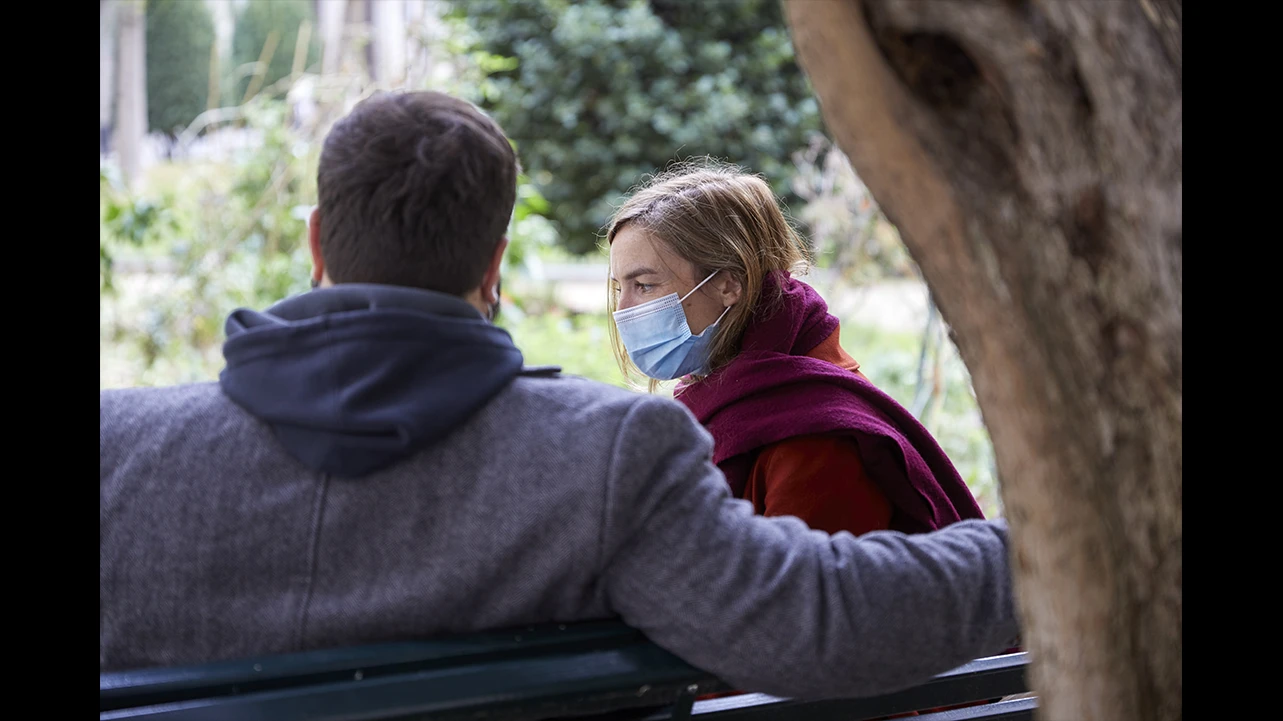
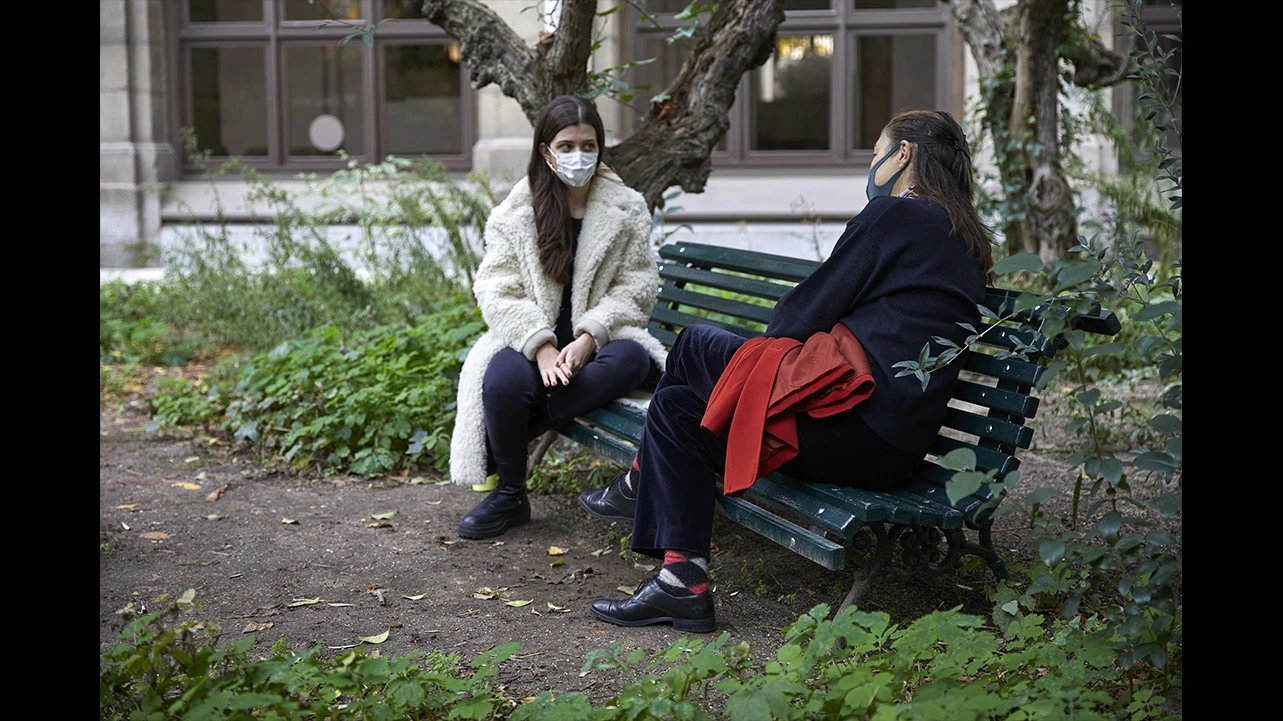
Más actividades

Aesthetics of Peace and Desertion Tactics
8 October 2025 – 24 June 2026
The study group Aesthetics of Peace and Tactics of Desertion: Prefiguring New Pacifisms and Forms of Transitional Justice proposes a rethinking—through both a theoretical-critical and historical-artistic lens—of the intricate network of concepts and practices operating under the notion of pacifism. A term not without contestation and critical tension, pacifism gathers under its name a multiplicity of practices—from anti-militarism and anti-war movements to non-violence activism—while simultaneously opening urgent debates around violence, justice, reparation, and desertion. Here, pacifism is not conceived as a moral doctrine, but as an active form of ethical and political resistance capable of generating aesthetic languages and new positions of social imagination.
Through collective study, the group seeks to update critical debates surrounding the use of violence and non-violence, as well as to explore the conflict of their representation at the core of visual cultures. In a present marked by rearmament, war, genocide, and the collapse of the social contract, this group aims to equip itself with tools to, on one hand, map genealogies and aesthetics of peace—within and beyond the Spanish context—and, on the other, analyze strategies of pacification that have served to neutralize the critical power of peace struggles. Transitional and anti-punitive justice proposals will also be addressed, alongside their intersections with artistic, visual, and cinematic practices. This includes examining historical examples of tribunals and paralegal activisms initiated by artists, and projects where gestures, imaginaries, and vocabularies tied to justice, reparation, memory, and mourning are developed.
It is also crucial to note that the study programme is grounded in ongoing reflection around tactics and concepts drawn, among others, from contemporary and radical Black thought—such as flight, exodus, abolitionism, desertion, and refusal. In other words, strategies and ideas that articulate ways of withdrawing from the mandates of institutions or violent paradigms that must be abandoned or dismantled. From feminist, internationalist, and decolonial perspectives, these concepts have nourished cultural coalitions and positions whose recovery today is urgent in order to prefigure a new pacifism: generative, transformative, and radical.
Aesthetics of Peace and Tactics of Desertion, developed and led by the Museo Reina Sofía’s Studies Management, unfolds through biweekly sessions from October to June. These sessions alternate between theoretical discussions, screenings, work with artworks and archival materials from the Museo’s Collection, reading workshops, and public sessions. The group is structured around sustained methodologies of study, close reading, and collective discussion of thinkers such as Judith Butler, Elsa Dorlin, Juan Albarrán, Rita Segato, Sven Lütticken, Ruth Wilson Gilmore, and Franco “Bifo” Berardi; historical episodes such as the anti-nuclear and anti-arms race movement in Spain; and the work of artists and activists including Rojava Film Commune, Manuel Correa and the Oficina de Investigación Documental (Office for Documentary Investigation), and Jonas Staal, among other initial cases that will expand as the group progresses.

Institutional Decentralisation
Thursday, 21 May 2026 – 5:30pm
This series is organised by equipoMotor, a group of teenagers, young people and older people who have participated in the Museo Reina Sofía’s previous community education projects, and is structured around four themed blocks that pivot on the monstrous.
This fourth and final session centres on films that take the museum away from its axis and make it gaze from the edges. Pieces that work with that which is normally left out: peripheral territories, unpolished aesthetics, clumsy gestures full of intent. Instead of possessing an institutional lustre, here they are rough, precarious and strange in appearance, legitimate forms of making and showing culture. The idea is to think about what happens when central authority is displaced, when the ugly and the uncomfortable are not hidden, when they are recognised as part of the commons. Film that does not seek to be to one’s liking, but to open space and allow other ways of seeing and inhabiting the museum to enter stage.

Intergenerationality
Thursday, 9 April 2026 – 5:30pm
This series is organised by equipoMotor, a group of teenagers, young people and older people who have participated in the Museo Reina Sofía’s previous community education projects, and is structured around four themed blocks that pivot on the monstrous.
The third session gazes at film as a place from which to dismantle the idea of one sole history and one sole time. From a decolonial and queer perspective, it explores films which break the straight line of past-present-future, which mix memories, slow progress and leave space for rhythms which customarily make no room for official accounts. Here the images open cracks through which bodies, voices and affects appear, disrupting archive and questioning who narrates, and from where and for whom. The proposal is at once simple and ambitious: use film to imagine other modes of remembering, belonging and projecting futures we have not yet been able to live.

Remedios Zafra
Thursday March 19, 2026 - 19:00 h
The José Luis Brea Chair, dedicated to reflecting on the image and the epistemology of visuality in contemporary culture, opens its program with an inaugural lecture by essayist and thinker Remedios Zafra.
“That the contemporary antifeminist upsurge is constructed as an anti-intellectual drive is no coincidence; the two feed into one another. To advance a reactionary discourse that defends inequality, it is necessary to challenge gender studies and gender-equality policies, but also to devalue the very foundations of knowledge in which these have been most intensely developed over recent decades—while also undermining their institutional support: universities, art and research centers, and academic culture.
Feminism has been deeply linked to the affirmation of the most committed humanist thought. Periods of enlightenment and moments of transition toward more just social forms—sustained by education—have been when feminist demands have emerged most strongly. Awareness and achievements in equality increase when education plays a leading social role; thus, devaluing intellectual work also contributes to harming feminism, and vice versa, insofar as the bond between knowledge and feminism is not only conceptual and historical, but also intimate and political.
Today, antifeminism is used globally as the symbolic adhesive of far-right movements, in parallel with the devaluation of forms of knowledge emerging from the university and from science—mistreated by hoaxes and disinformation on social networks and through the spectacularization of life mediated by screens. These are consequences bound up with the primacy of a scopic value that for some time has been denigrating thought and positioning what is most seen as what is most valuable within the normalized mediation of technology. This inertia coexists with techno-libertarian proclamations that reactivate a patriarchy that uses the resentment of many men as a seductive and cohesive force to preserve and inflame privileges in the new world as techno-scenario.
This lecture will address this epochal context, delving into the synchronicity of these upsurges through an additional parallel between forms of patriarchal domination and techno-labor domination. A parallel in which feminism and intellectual work are both being harmed, while also sending signals that in both lie emancipatory responses to today’s reactionary turns and the neutralization of critique. This consonance would also speak to how the perverse patriarchal basis that turns women into sustainers of their own subordination finds its equivalent in the encouraged self-exploitation of cultural workers; in the legitimation of affective capital and symbolic capital as sufficient forms of payment; in the blurring of boundaries between life and work and in domestic isolation; or in the pressure to please and comply as an extended patriarchal form—today linked to the feigned enthusiasm of precarious workers, but also to technological adulation. In response to possible resistance and intellectual action, patriarchy has associated feminists with a future foretold as unhappy for them, equating “thought and consciousness” with unhappiness—where these have in fact been (and continue to be) levers of autonomy and emancipation.”
— Remedios Zafra

27th Contemporary Art Conservation Conference
Wednesday, 4, and Thursday, 5 March 2026
The 27th Contemporary Art Conservation Conference, organised by the Museo Reina Sofía’s Department of Conservation and Restoration, with the sponsorship of the Mapfre Foundation, is held on 4 and 5 March 2026. This international encounter sets out to share and debate experience and research, open new channels of study and reflect on conservation and the professional practice of restorers.
This edition will be held with in-person and online attendance formats, occurring simultaneously, via twenty-minute interventions followed by a five-minute Q&A.
